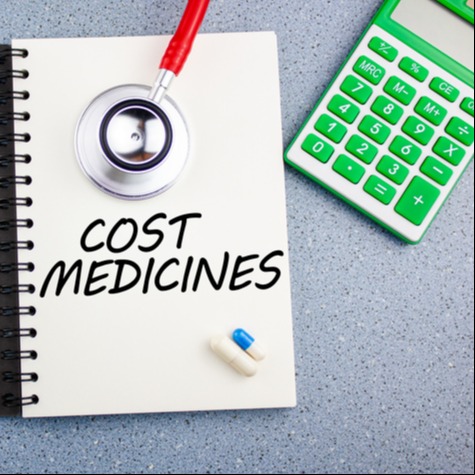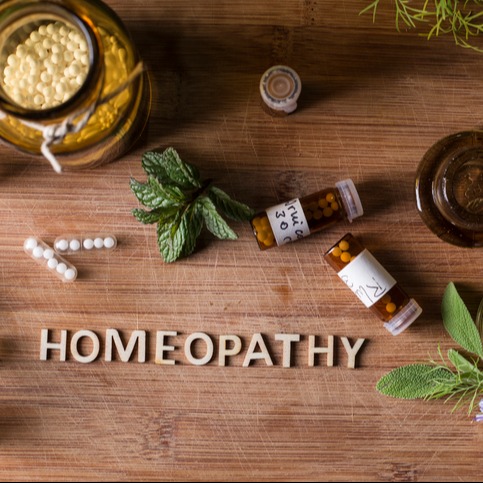
Key Takeaways
Complex rebate structures sustain high drug prices, as seen with Humira.
Rebates often favor expensive medications like Humira over affordable alternatives.
Blue Shield of California's adoption of Humira biosimilars demonstrates a shift towards cost-saving solutions.
Using generics, biosimilars, and transparent pricing can lower costs and improve adherence.
Ensuring access to affordable medications reduces financial burdens on patients, especially for those reliant on drugs like Humira.
State Health Plan Offers Humira to Its Members for Free
On October 1, 2024, Blue Shield of California announced a significant reduction in its price for a biosimilar of the widely-used drug Humira® (adalimumab). The nonprofit health plan will purchase the biosimilar at a transparent price of $525 per monthly dose, compared with Humira’s market-reported net cost of $2,100.
This reduction is made possible through a partnership with Fresenius Kabi, the biosimilar manufacturer, and Evio Pharmacy Solutions, which facilitated the agreement. Unlike the traditional pharmacy benefit manager (PBM) model, which often includes substantial markups, Blue Shield’s Pharmacy Care Reimagined initiative eliminates these excess costs. This new model provides members greater access to approved biosimilar drugs, which offer the same clinical effectiveness as brand-name medications but at a lower, more transparent price.
Blue Shield of California spends over $100 million annually on Humira, making it the health plan's largest drug expenditure. With the introduction of lower-priced alternatives and the elimination of middlemen fees, executives estimate savings of $20 million over the next three years, though they acknowledge this figure may be conservative.
According to an anonymous source familiar with the pricing details, starting next year, Blue Shield will pay $525 per month for the biosimilar—about a quarter of the current cost after factoring in rebates.
Calling Out the PBMs
AbbVie Inc.'s Humira has long been an example of how drug prices can remain elevated even after patent protection expires. Once the world’s top-selling medication, Humira generated $14 billion in sales last year despite the availability of cheaper alternatives. Pharmacy Benefit Managers (PBMs) typically agree to pay higher prices to drugmakers in exchange for "rebates," a practice the U.S. Federal Trade Commission recently argued in a lawsuit is unlawfully increasing patient costs. In Humira’s case, drug plans initially favored the brand-name version and other more expensive options due to larger rebates. However, the three largest PBMs have now announced they are replacing branded Humira with lower-cost alternatives on their preferred drug lists.
Blue Shield of California Makes a Bold Move
Blue Shield of California aims to reform a system that inflates consumer costs, pushing for practical, affordable alternatives. The company expects employers, health plans, and payers to pressure their pharmacy benefit managers (PBMs) to prioritize more cost-effective options.
This collaboration between Blue Shield, Fresenius Kabi, and Evio marks the first use of this unique business model to bring a Humira biosimilar to market. By simplifying the supply chain, aligning incentives, and reducing complexity, they have successfully introduced Fresenius Kabi’s biosimilar, adalimumab-aacf. Historically, supply chain challenges have hindered the adoption of lower-cost biosimilars, but this new approach overcomes those barriers.
Starting January 1, 2025, most Blue Shield commercial members using adalimumab-aacf will pay $0 out of pocket. This move is expected to significantly reduce drug costs and improve treatment adherence, positively impacting overall care and patient health outcomes.
Evio Pharmacy Solutions, which played a key role in facilitating the agreement, is committed to eliminating the traditional incentives that inflate prices within the PBM model. With a wave of lower-cost biosimilars poised to enter the market, this shift toward transparent pricing could become a blueprint for the industry.
Humira, on the market since 2002, treats a range of inflammatory conditions such as arthritis and Crohn’s disease. Its manufacturer has faced criticism for the drug’s high prices and extended patent protections. While Humira has benefited many patients, its price remained elevated even after its patent expired in January 2023, limiting the adoption of more affordable alternatives.
With over 300,000 Americans using Humira annually, and Blue Shield processing about 40,000 prescriptions each year, the introduction of an affordable biosimilar is expected to alleviate financial pressure for both the health plan and its members.
Blue Shield’s Pharmacy Care Reimagined initiative, launched last year, seeks to dismantle the opaque drug supply model traditionally used by PBMs. The introduction of biosimilars is a key step in the nonprofit’s broader efforts to reform the pharmacy supply chain and make medications more affordable and accessible for its members.
The Pressure to Reduce Drug Costs
Rising healthcare costs are putting increasing pressure on health plans to find lower-cost alternatives to life-saving and life-enhancing medications. As drug prices continue to climb, the burden on patients and insurers intensifies, leading to higher premiums, out-of-pocket expenses, and overall healthcare costs. For many, particularly those with chronic conditions, life-saving drugs are essential for managing their health and maintaining quality of life. However, the elevated costs of brand-name medications often make access difficult, especially for individuals without comprehensive insurance or sufficient financial resources.
One solution lies in the availability of generic drugs and biosimilars, which are typically priced much lower than their brand-name counterparts while providing the same clinical effectiveness. By adopting these alternatives, health plans can significantly ease the financial burden on patients and improve access to necessary treatments. The Food and Drug Administration ensures that generics and biosimilars meet rigorous safety and efficacy standards, making them a reliable option for reducing costs without compromising patient outcome.
Moreover, the inflated prices of many patented drugs are often maintained through complex rebate structures between manufacturers and pharmacy benefit managers (PBMs). These arrangements can obscure the true costs and incentivize the use of expensive medications, even when more affordable alternatives are available. By adopting a more transparent pricing model and prioritizing the use of generics and biosimilars, health plans can help reduce financial barriers, control overall costs, and improve patient adherence to treatment.
Ultimately, the shift toward lower-cost alternatives is crucial for ensuring the sustainability of health plans and enabling patients to access the life-saving medications they need without facing prohibitive cost.
Rely on PlanetDrugsDirect.com to Buy Online Prescription Drugs
As a trusted prescription referral service, we offer important benefits whenever you order online. Each of our partner pharmacies and/or government-approved dispensaries is committed to providing the best experience possible of any online prescription referral service on the internet. We offer:
Low prices
Quick turn-around times
Generic and brand-name medications
Unparalleled customer service
Sources
Gale A. If Pharmacy Benefit Managers Raise Drug Prices, Then Why Are They Needed? Mo Med. 2023 Jul-Aug;120(4):243-244.
Gibbons JB, Laber M, Bennett CL. Humira: the first $20 billion drug. Am J Manag Care. 2023 Feb;29(2):78-80.
Mirda DP. Pharmacy Benefit Managers: Do They Provide the Value Promised? JCO Oncol Pract. 2020 May;16(5):273-274.
Norman P. Humira: the impending patent battles over adalimumab biosimilars. Pharm Pat Anal. 2016 May;5(3):141-5.
Robinson JC. Pharmacy Benefit Management: The Cost of Drug Price Rebates. J Law Med Ethics. 2023;51(S2):52-54.
 Medically reviewed by
Medically reviewed by 





